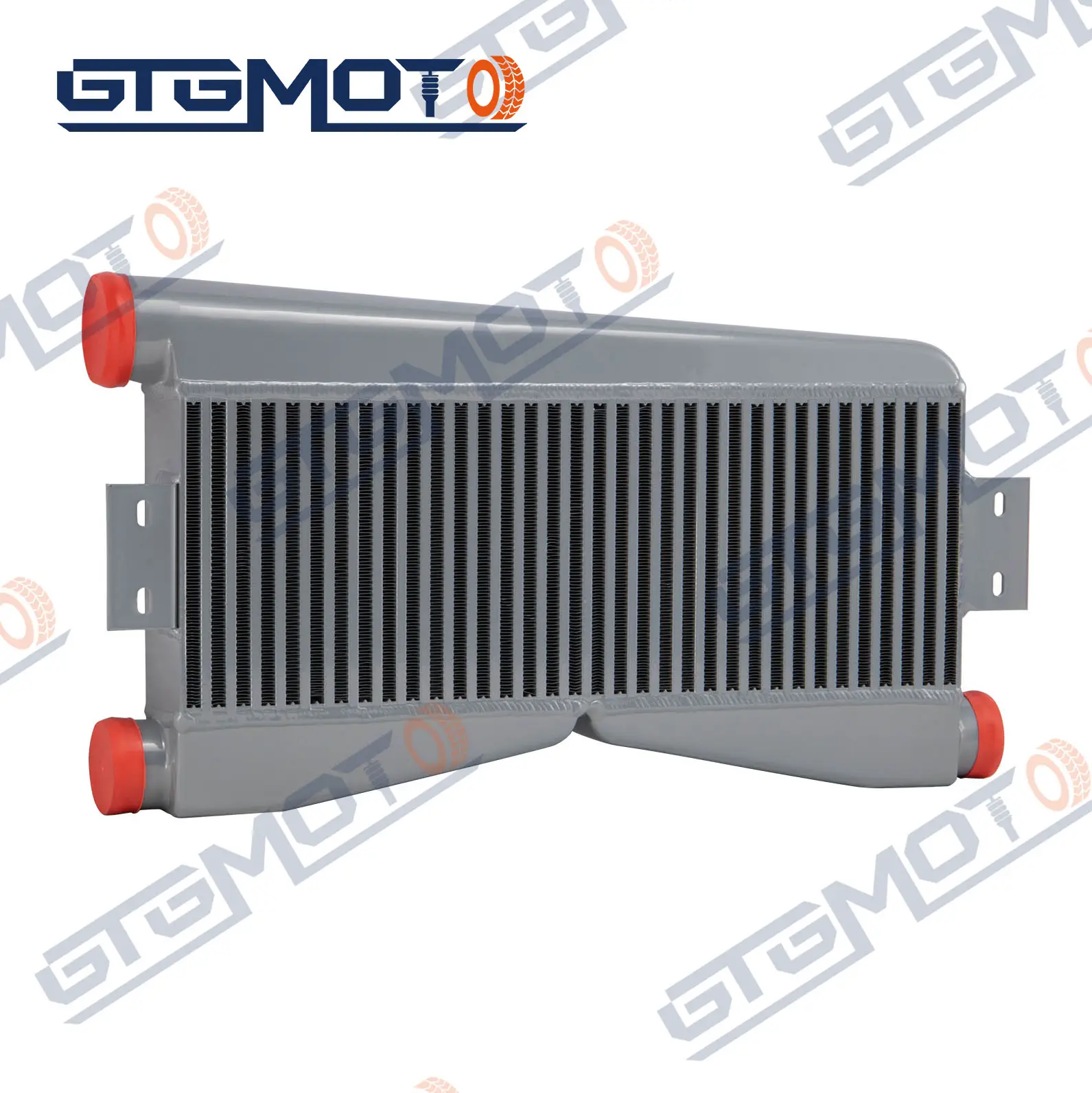Maximizing Engine Performance Through Advanced Cooling Technology
The automotive performance landscape is witnessing a revolutionary transformation in 2025, with intercooler upgrades taking center stage in the quest for optimal engine efficiency. As enthusiasts and professionals seek to extract maximum power from their turbocharged and supercharged engines, the role of effective heat management becomes increasingly crucial. Modern intercooler upgrades represent the pinnacle of engineering innovation, offering unprecedented levels of cooling efficiency and power gains.
Understanding the significance of intercooler upgrades goes beyond simple performance metrics. These vital components are responsible for maintaining optimal intake air temperatures, directly impacting engine reliability, power output, and overall driving experience. As we delve into the latest advancements and options available in 2025, you'll discover how these upgrades can transform your vehicle's performance potential.
Latest Intercooler Technology Advancements
Revolutionary Core Designs
The evolution of intercooler technology has led to groundbreaking core designs that maximize heat dissipation while minimizing pressure drop. Modern bar-and-plate configurations utilize advanced aluminum alloys and precision manufacturing techniques to create more efficient heat exchange surfaces. These new designs feature optimized fin density and enhanced internal flow characteristics, resulting in superior cooling performance compared to traditional tube-and-fin designs.
Engineering improvements in 2025 have introduced variable-flow technology, allowing intercooler upgrades to adapt to different driving conditions automatically. This innovation ensures optimal performance whether you're cruising on the highway or pushing your vehicle to its limits on the track.
Advanced Materials Integration
Material science breakthroughs have revolutionized intercooler construction, with manufacturers incorporating aerospace-grade composites and ceramic coatings. These materials offer superior heat dissipation properties while reducing overall weight. The implementation of nano-enhanced surfaces has also emerged, providing improved thermal conductivity and resistance to corrosion.
Contemporary intercooler upgrades utilize hybrid construction techniques, combining different materials to optimize performance characteristics. This approach allows for better thermal expansion management and enhanced durability under extreme conditions.

Performance Benefits and Efficiency Gains
Power Output Improvements
Modern intercooler upgrades deliver substantial power gains through more efficient heat exchange. By maintaining lower intake temperatures, these systems allow for more aggressive tuning while preventing power-robbing heat soak. Independent testing has shown power increases of 15-25 horsepower in many applications, with some high-performance setups achieving even greater gains.
The effectiveness of 2025's intercooler upgrades extends beyond peak power numbers, offering improved throttle response and consistent performance during extended high-load operation. This translates to more reliable power delivery and better overall driving dynamics.
Fuel Economy Optimization
Contrary to common misconception, modern intercooler upgrades can actually improve fuel efficiency. By maintaining optimal intake air temperatures, engines can operate more efficiently with better combustion characteristics. This results in improved fuel economy during both normal driving conditions and high-performance situations.
Advanced flow modeling and computational fluid dynamics have enabled manufacturers to design intercooler upgrades that minimize restriction while maximizing cooling efficiency. This balance ensures that fuel economy benefits are realized without compromising performance potential.
Installation Considerations and Compatibility
Fitment and Mounting Solutions
The latest generation of intercooler upgrades offers unprecedented flexibility in mounting options. Manufacturers have developed modular mounting systems that accommodate various vehicle configurations while ensuring proper clearance and optimal airflow. These solutions often include adjustable brackets and custom-engineered hardware for precise fitment.
Installation complexity has been significantly reduced through the implementation of vehicle-specific design features and comprehensive mounting kits. This attention to detail ensures proper integration with existing components while minimizing the need for additional modifications.
Integration with Vehicle Systems
Modern intercooler upgrades are designed to work seamlessly with factory electronic systems and sensors. Advanced pressure mapping and temperature monitoring capabilities ensure compatibility with onboard diagnostics and engine management systems. This integration maintains proper engine operation while maximizing the benefits of the upgrade.
Manufacturers now include sophisticated monitoring systems with their intercooler upgrades, allowing users to track performance metrics in real-time. This data-driven approach enables optimal tuning and system verification for maximum performance gains.
Future Trends and Innovations
Smart Cooling Technology
The horizon of intercooler technology reveals exciting developments in smart cooling systems. Adaptive thermal management systems are being integrated into premium intercooler upgrades, utilizing artificial intelligence to optimize cooling performance based on driving conditions and environmental factors.
Connected vehicle integration is becoming a reality, with intercooler systems capable of communicating with other vehicle components to maintain optimal performance parameters. This level of integration represents the next evolution in automotive cooling technology.
Sustainable Manufacturing Practices
Environmental consciousness is driving innovation in intercooler production methods. Manufacturers are adopting sustainable practices and eco-friendly materials without compromising performance. Recycled aluminum content and low-impact manufacturing processes are becoming industry standards.
The focus on sustainability extends to product longevity, with new designs emphasizing durability and serviceability. This approach reduces waste and ensures long-term performance benefits for consumers.
Frequently Asked Questions
How much horsepower can I gain from an intercooler upgrade?
Depending on your vehicle and the specific upgrade chosen, horsepower gains typically range from 15-25 HP. However, some applications may see increases of up to 40 HP with proper tuning and supporting modifications. The actual gains will vary based on your engine configuration and environmental conditions.
Will installing an upgraded intercooler void my vehicle warranty?
While modifications can affect warranty coverage, many manufacturers design their intercooler upgrades to work within factory specifications. It's important to check with your vehicle manufacturer and choose a reputable upgrade provider that offers warranty support for their products.
How often should an upgraded intercooler be maintained?
Modern intercooler upgrades require minimal maintenance, but periodic inspection and cleaning are recommended every 20,000-30,000 miles. This includes checking for debris in the core, ensuring secure mounting, and inspecting connections for any signs of wear or damage.

